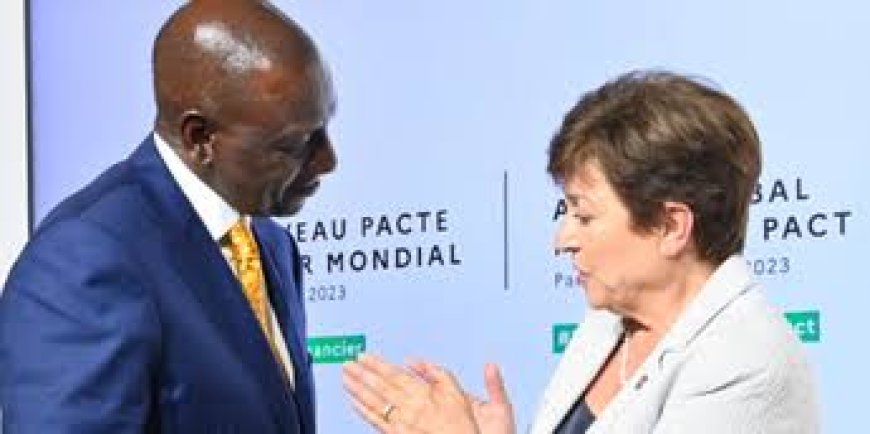IMF approves new agreement with Kenya

By Robert Mutasi
The International Monetary Fund has greenlit a new deal with Kenya to make the economy more resilient and extend further support to President William Ruto's administration amid financial vulnerabilities.
In a statement shortly after the executive board approval, Gita Gopinath, IMF's Deputy Managing Director, provided some upbeat sentiment regarding Kenya's economic path despite substantial socio-economic challenges.
The Kenyan economy still remains resilient; growth above the regional average, inflation decelerating, and external inflows are supporting the shilling and a buildup of external buffers," said Gopinath. "The EFF and ECF, supplemented by the new RSF, continue to anchor the authorities' efforts toward anchoring macro-economic stability, reducing debt vulnerabilities, promoting reforms, and mitigating climate-related risks."
The support from the IMF comes amidst mounting pressure on the Ruto regime to act on public debt and ensure economic growth. Kenya's public debt is estimated to be about 67% of its GDP, and recent projections have indicated it might increase if unchecked.
Therefore, the IMF program emphasizes debt management and fiscal responsibility to enable Kenya to sustain development without increasing its debt burden.
The new deal will see Kenya get more money to implement specific economic reforms, including improving revenue collection, reducing budget deficits, and increasing transparency in public investments.
The IMF's RSF arrangement will make resources available to the Kenyan government to cope with climate-related risks that have caused considerable economic and social damage in recent years.
This aspect of the deal also aligns with Kenya's commitments toward sustainable development and the wider global drive toward climate resilience.
The Ruto administration has made pronouncements on the need for economic reforms that ensure growth in employment and investment.
The support by the IMF gives the government an important lifeline when it is struggling to stabilize the economy.
"This programme comes at a critical time as we work on reducing our reliance on external debt and focusing on internally generated revenue to finance our national budget," said the Treasury Secretary Njuguna Ndung'u.
The new programme, however, received mixed reaction from Kenyans and various economic analysts.
Although the IMF claims its interventions would enable Kenya to navigate an increasingly unfriendly external economic environment while reining in public debt, some critics say IMF conditions may lead to austerity measures that will harm vulnerable populations.
Despite such criticisms, however, both the IMF and the Kenyan government have assessed the program as one of paramount importance; its implementation seen as key to sustaining Kenya's economic momentum while also preparing the country to manage longer-term risks.
Renewed support from the IMF forms a strategic boost to Kenya in her quest for sustainable development at a time when the global economic outlook has become highly uncertain.
The deal underpins the Kenyatta administration's commitment to prudent fiscal management, aimed at strengthening the nation's economic foundation for the future years.
What's Your Reaction?



































































































































































































































































































